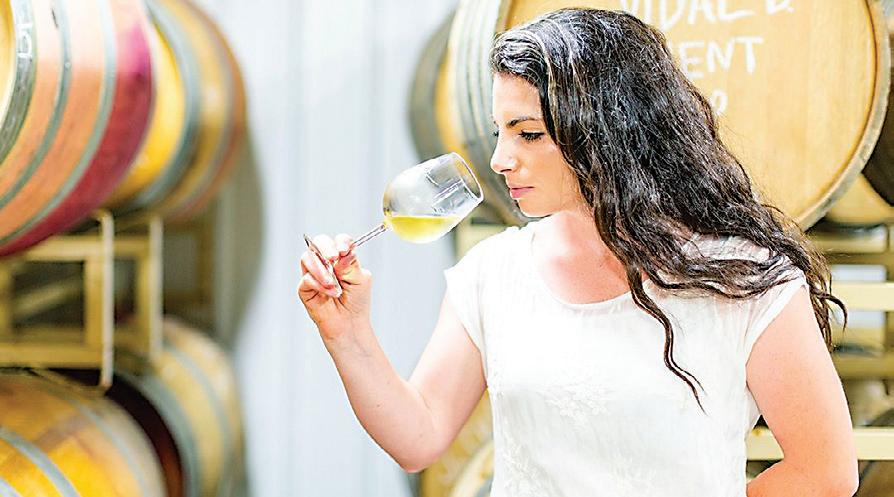
7 minute read
East Valley rabbi and CEO connects with his Sephardi side
SHANNON LEVITT | STAFF WRITER

Advertisement
As a kid in a small Jewish community in the northern Italian city of Milan, Rabbi Michael Beyo was steeped in Sephardi traditions. His father was born in Turkey, the country where his family had lived for 500 years after being expelled from Spain during the Inquisition. But when he stepped outside his home, Beyo was surrounded by the dominant Ashkenazi culture of his mother and his country.
For years he didn’t question the prevalence of Ashkenazi Jews. But when he was 12, a teacher told him that if his Hebrew pronunciation was Sephardi, rather than Ashkenazi, God wouldn’t hear his prayers.
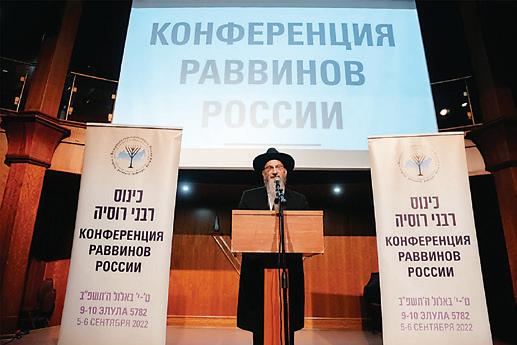
“He was a teacher, and I believed him,” Beyo said.
A lot has changed in the years since for the CEO of the East Valley Jewish Community Center, and recently, he was named one of the leadership fellows in the Sephardic Leadership Institute’s (SLI) first national cohort. The program, intended to develop and support a network of Sephardi and Mizrahi Jewish professionals, will last six months.
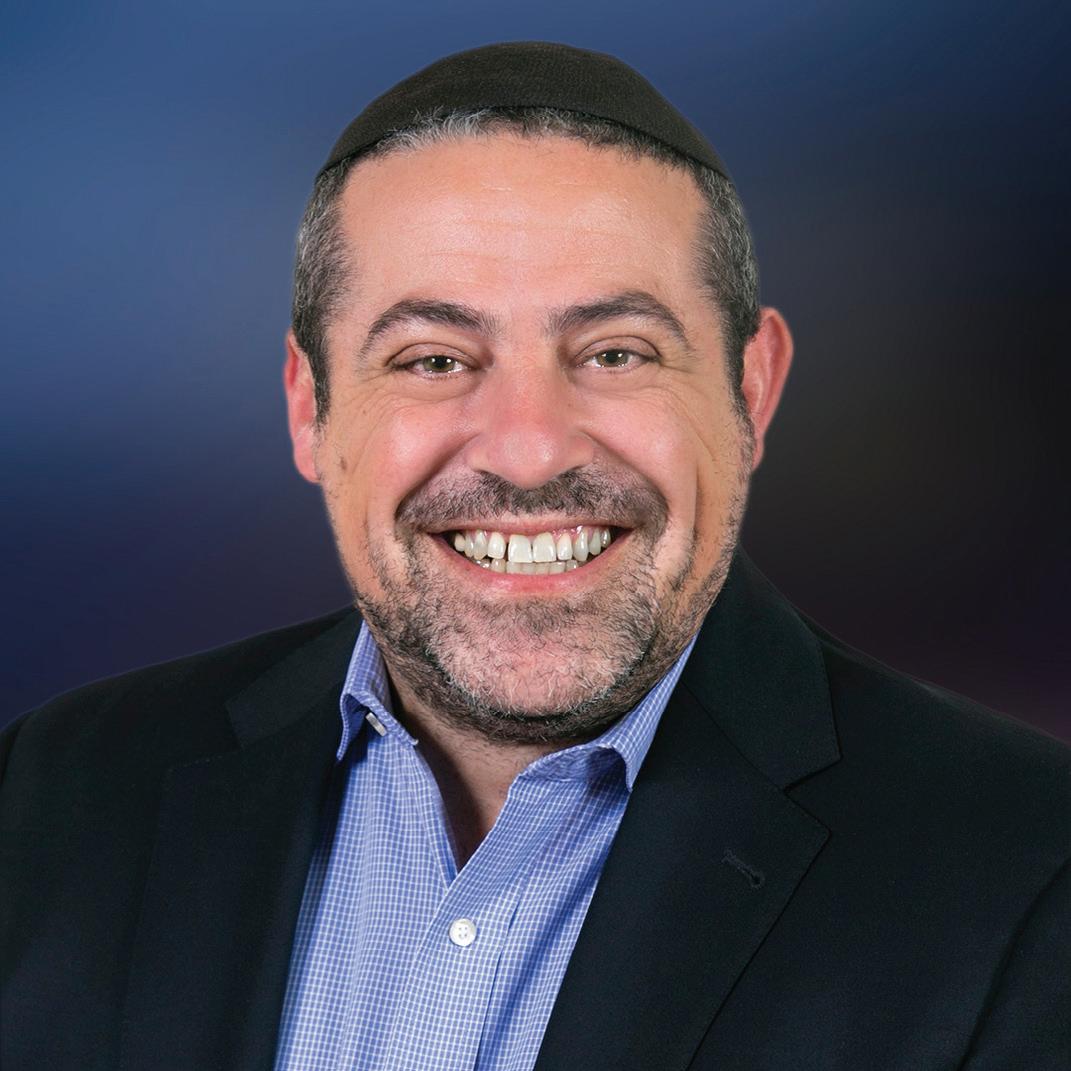
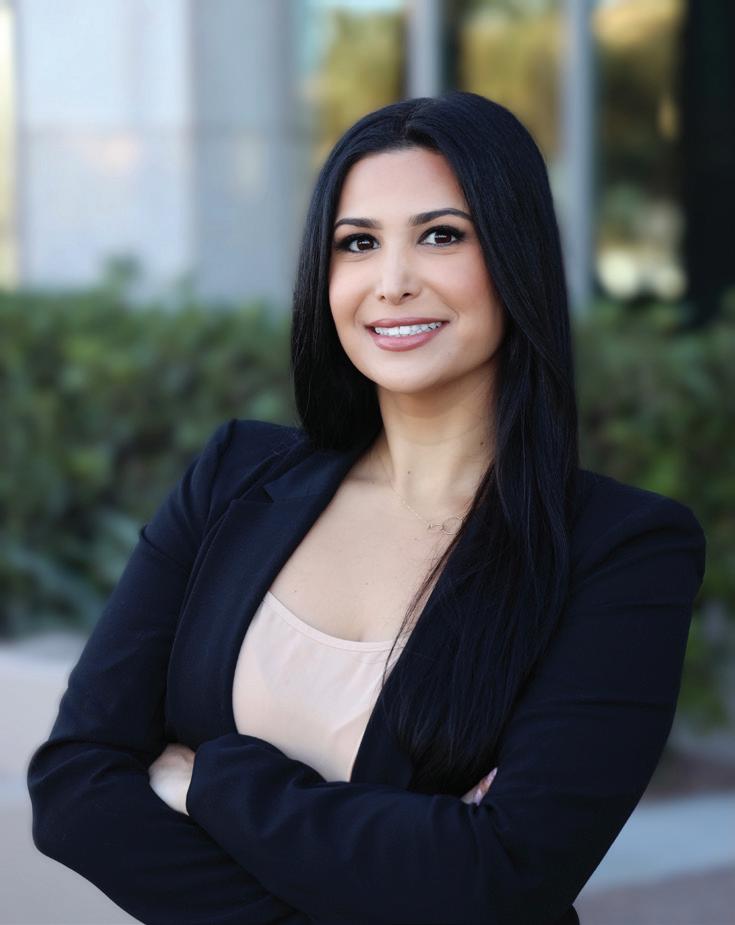
Jews Indigenous to the Middle East and North Africa (JIMENA), a nonprofit located in Northern California, launched SLI this summer in an effort to connect North African and Middle Eastern Jewish professionals and increase their representation in Jewish organizations. Beyo learned of the fellowship program and decided to apply, both as a way to network and to look for possible collaborations with the EVJCC. And personally, it was intriguing.
Before he moved to Israel in his 20s — where he would receive three rabbinical ordinations — Beyo’s experience of the wider Jewish world was dominated by Ashkenazi
Bye-bye to buyer fatigue
With more inventory, less competitive offers and financial incentives, it has become a buyer-friendly real estate market. Go to page 20 to read more.
Headlines
SEPHARDI
CONTINUED FROM PAGE 1
Jews; whether in Italy, England (where he moved when he was 15) or France. Much later, when he moved to the United States, he would find the same was true here.
“I studied in Ashkenazi schools and went to their yeshivot,” he said. “I only realized later that I had been deprived of my Sephardi heritage.”
In Israel, he saw something new. Sephardi Jews there had started to assert themselves and their traditions in a kind of counter revolution. “Young Sephardim were saying, ‘Enough is enough! We want to celebrate our traditions, our foods, our music,’” Beyo said.
“When you are in the system, you don’t realize what they teach you is slanted in only one way,” he said. “Being in Israel helped me understand that 100%.”
Beyo explained that in modern times, Sephardi Jews living in predominantly Ashkenazi communities have been discriminated against in one way or another.
“That’s the reality,” he said. “It’s true in Italy, and it’s true in America. It was also happening in Israel where discrimination against Sephardim was institutionalized.”
Echoing his point, last month, Israel’s national statistical bureau decided to begin publishing data statistics on socioeconomic differences between Jews of Ashkenazi or European origins, and those of Mizrahi or North African and Middle Eastern origin, according to Jewish Telegraphic Agency.
“Historically, and to a significant extent still, Ashkenazi Jews have populated Israel’s upper class while Mizrahi Jews have been poorer as a whole, with discriminatory policies from Israel’s early years to blame for the inequality.”
Countering that reality is one of the goals of JIMENA. It is giving Sephardi leaders tools “to rediscover Sephardiness and assert itself against Ashkenormative life,” Beyo said. both at ease at the EVJCC and accepted.
Personally, he feels pretty lucky to be part of both worlds. His Ashkenazi mother, a combination of Czech, Polish and Austrian Jewish ancestry, was born in Milan after World War II. Thus, Beyo feels comfortable in both environments, and he can make jokes about both, he quipped.
Comfort is one thing, but when it comes to his home, what he enjoys and how he understands the world, he is Sephardi.
“I am not trying to make Reform Jews become Orthodox,” he said. “I try to help every Jew be the best Jew they want to be.”
When he was awarded the fellowship, Beyo was surprised to find so many new organizations he didn’t know existed and connecting with new people “was really cool.”
After having “been around the block a few times,” he admitted most of the topics are pretty familiar. Still, he said the work JIMENA is doing is “amazing,” and he appreciates every encounter and
2022 Phoenix Jewish News Print Dates
January 7
August 5
“The music I listen to is Sephardi, the food I eat is Sephardi and the way I understand Judaism is through the Sephardi traditional, historical approach to Judaism,” he said.
He even attributes his ability to serve as both an Orthodox rabbi and the CEO of a JCC to his Sephardi heritage and outlook.
In the Sephardi world, he explained, there are no Reform or Conservative Jews, just Jews. Whether one keeps kosher or drives to services — all Jews go to the same synagogue.
While a traditional Ashkenazi Orthodox rabbi might not be accepted as a JCC CEO, or feel comfortable there, Beyo is
Correction
learning opportunity.
“We can learn from everyone and we should learn from everyone and never stop learning,” said Beyo. It’s important to relate to Jews of different backgrounds in order to have more empathy and appreciation for the diverse reality of the American community and those of Phoenix and the East Valley.
“Once you can appreciate diversity among one specific group,” he said, “it’s easier to appreciate it among others, as well.” JN
For more information on the East Valley Jewish Community Center, visit evjcc.org.
In the article, “AZ Humane Society forms partnerships in the Jewish community,” Sept. 9, 2022, in the photo caption, Elysa Snader was incorrectly identified as working for AHS, when she is an educator and facilitator for Gesher Disability Resources. Jewish News of Greater Phoenix regrets this error.
January 21
February 4
February 18
March 4
March 18
March 25
April 1
April 8
May 6
May 20
June 10
July 8
July 29
August 19*
September 9
September 16
September 23
October 7
October 14**
October 21
October 28
November 4
November 18
December 2
December 16
*Best of Magazine
**Annual Directory
WWW.JEWISHAZ.COM
PUBLISHER
Jewish Community Foundation of Greater Phoenix

GENERAL MANAGER Rich Solomon | 602.639.5861 rsolomon@jewishaz.com
MANAGING EDITOR
Mala Blomquist | 602.639.5855 mblomquist@jewishaz.com
STAFF WRITER
Shannon Levitt | 602.639.5854 slevitt@jewishaz.com
ADVERTISING SALES CONSULTANT
Jodi Lipson | 602.639.5866 jlipson@jewishaz.com
SUBSCRIPTIONS 602.870.9470 x 1 subscriptions@jewishaz.com
GRAPHIC DESIGNER
Jay Sevidal | 410.902.2313 ads_phoenixjn@midatlanticmedia.com
Jr., Founder | 1948-1961
PROUD MEMBER OF
It was really crazy.”
When the gold-buying craze started to wind down, Cohen decided to shift gears and return to his original roots in the jewelry business. In 2016, he opened Elite Fine Jewelers.
“We wanted to interact with people, to do good things for the community and good things for people,” said Cohen. “Not for one second do I have any regrets. It was the best thing I ever did. To be able to watch my kids increase the business is beyond my comprehension.”
The store’s daily operations are run as a family affair. Cohen, his wife and their three adult children Ashley, Justin and Abby, as well as his nephew Jake, can be found in the store at 805 N. Scottsdale Road in Tempe designing custom jewelry, holding consultations, buying, selling and trading diamonds and precious jewels — just as the Cohen family members before them had done in the 1950s.
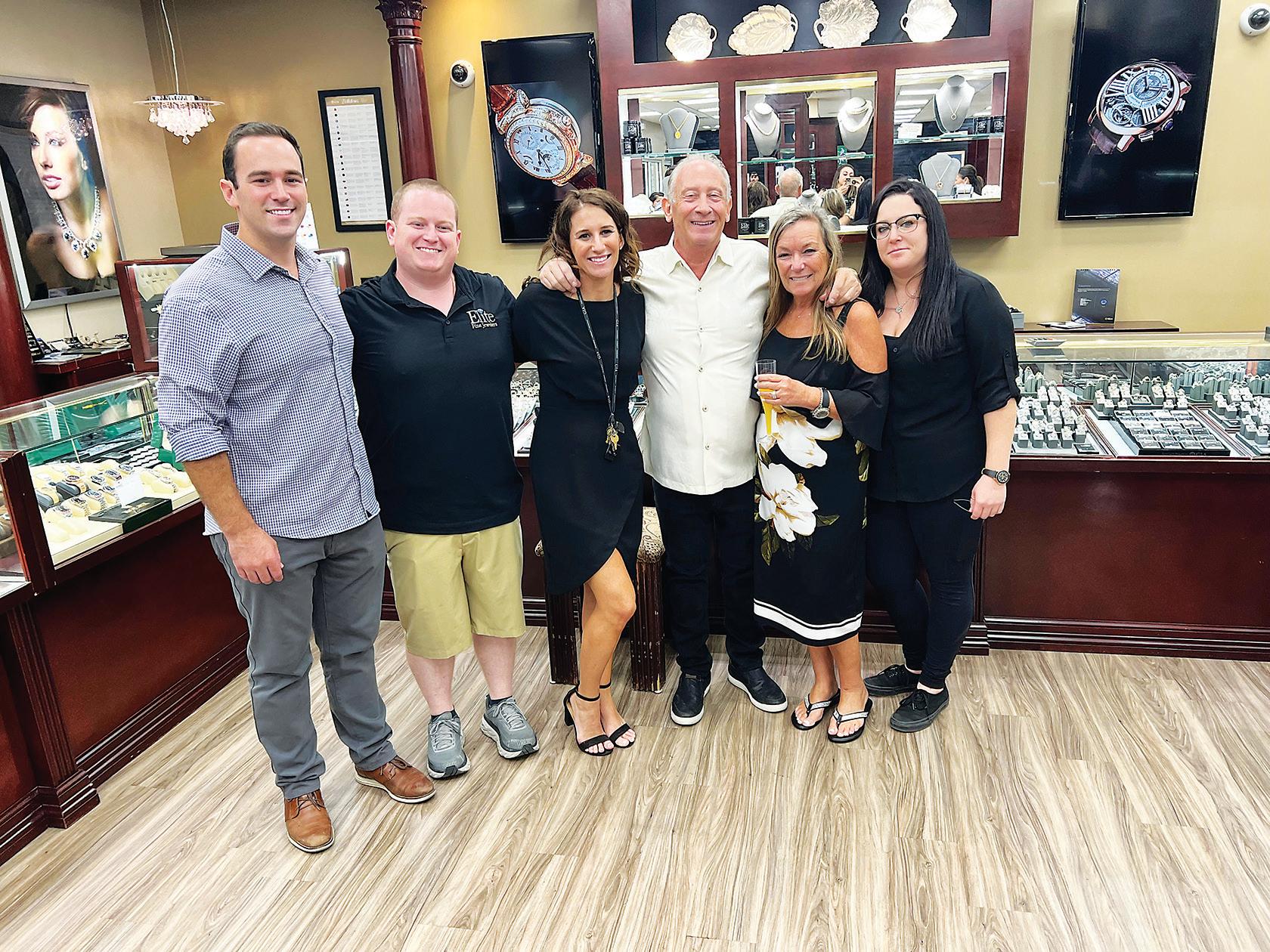
Each one of the children have their own forte in the business. Justin Cohen became fascinated in high school with the grading system of diamonds and the factors used to classify them and has increased his knowledge over the years. Abby Cohen is an appraiser, becoming a graduate gemologist from the Gemological Institute of America (GIA), one of the most prestigious credentials you can achieve in the industry.
“She did it in two years,” said Cohen. “I know people that took ten years to do it.”
Ashley Cohen-Isaacson is savvy with social media and handles the marketing aspect of the business. She also is the mother of two young boys, Ethan, 8 and Ezra, 5.
Cohen shared a piece of Jewish trivia about his grandsons’ genetics. “I’m a Cohanim [the priestly family of the Jewish people, members of the Tribe of Levi and direct descendants of Aaron, the brother of Moses] and my son-in-law is also a Cohanim. It’s fascinating — and rare — that a Cohanim’s daughter married another Cohanim.”
Genetics aside, Cohen is anxious to bring his grandsons to work. “I’m going to bring Ethan in on Saturdays to get him started,” said Cohen. “I’m determined to see at least four generations in the business.” He jokes that he’s already assigning the grandchildren titles: Justin’s 19-month-old daughter is going to be bookkeeper someday.
Not only does the family work together, but they also take vacations together. And even if they all go out to dinner, they talk about the business.
“If we’re all together, we will inevitably talk about the business and none of my kids have ever said, ‘We’re not talking business.’” said Cohen.
“Yeah, I’ve never felt like, ‘Enough! Would you stop talking about it?’” said Cohen-Isaacson. “It’s never anything that’s crossed my mind because it’s fun. It’s, ‘How could we do better? What ideas do we have for the future?’ It’s good brainstorming.”
Cohen-Isaacson said that it’s fun working with the family and sometimes customers don’t realize they are all siblings. “Sometimes we’ll bicker and I’m like, ‘Oh sorry, this is my sister, I wouldn’t normally talk to an employee like that.’”

At the end of the day though, she said everyone has each other’s back and steps in if someone is sick or there’s an issue with the kids.
“We are very blessed,” said Beth Cohen. “Everybody had an interest in it and wanted to keep it going.”
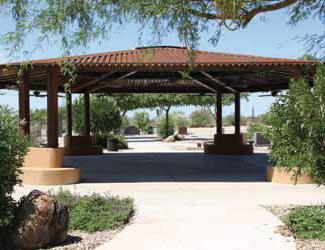
Larry Cohen said the secret is finding each child’s passion in the business early on. “This is what will continue bringing them in and wanting to come here — just like my father did for me.
“The excitement and the interest are so strong that they want to be here. Every one of my kids, whatever they’re doing, is passion driven.” JN










